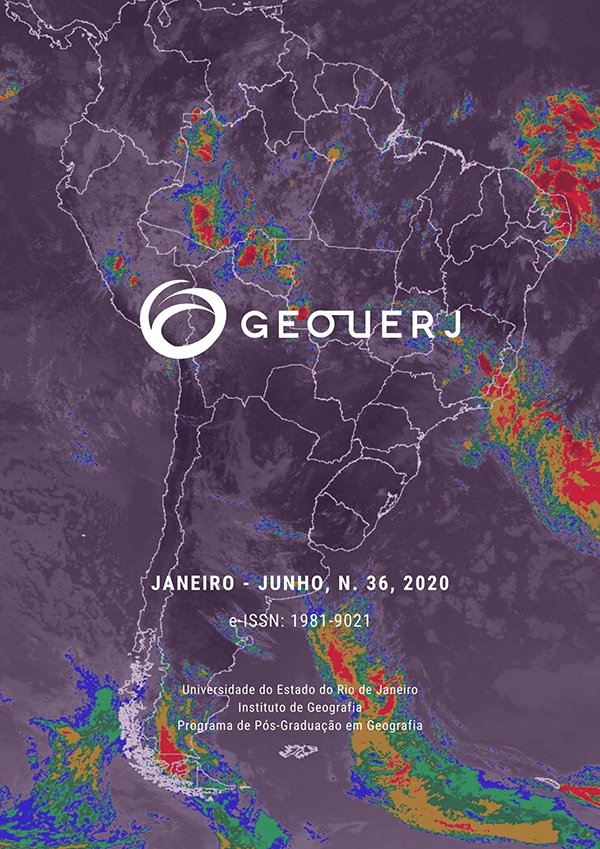URBAN POLICURBAN POLICY IN BRAZIL: THE DIFFICULT REGULATION OF A PERIPHERAL URBANIZATIONY IN BRAZIL: the difficult regulation of a peripheral urbanization
DOI:
https://doi.org/10.12957/geouerj.2020.47269Keywords:
Urbanization process. Urban regulation. Peripheral urbanizationAbstract
This article deals with the difficult regulation of the Brazilian urbanization process throughout the twentieth century and the challenges that emerge in the 21st century. It begins with a description of the urbanization process in Brazil, aiming to associate the transformation of a rural society into an urban-industrial base. Then we pointed out the advance in urban legislation introduced in the post-constitutional period, marked by an increase in social rights in the country. And despite this advance, the peripheral urbanization, characteristic of the Brazilian urbanization process, persisted, which allows us to recognize the failure of the normative advance of urban policies to be effective in favor of a social and inclusive urbanization of the poor population.Downloads
Download data is not yet available.
Downloads
Published
2020-02-14
How to Cite
SANTOS, Angela Moulin S. Penalva. URBAN POLICURBAN POLICY IN BRAZIL: THE DIFFICULT REGULATION OF A PERIPHERAL URBANIZATIONY IN BRAZIL: the difficult regulation of a peripheral urbanization. Geo UERJ, Rio de Janeiro, n. 36, p. e47269, 2020. DOI: 10.12957/geouerj.2020.47269. Disponível em: https://www.e-publicacoes.uerj.br/geouerj/article/view/47269. Acesso em: 3 oct. 2025.
Issue
Section
Políticas Públicas e Território: análise da agenda pública na segunda década do século XXI
License
The copyright of articles published in Geo UERJ belongs to their respective authors with rights to first publication conceded to the journal. Every time that the article is cited and reproduced in institutional repositories or personal and professional web pages the link to the journal web page must be provided Geo UERJ.

The articles are simultaneously licensed under theCreative Commons Atribuição-Não Comercial-Compartilha Igual 4.0 Internacional.


